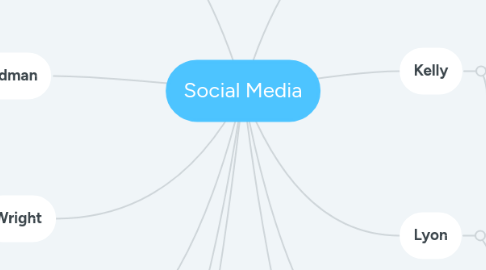Social Media
by Joely Fox


1. Louw
1.1. Three different attitudes to the likely impact of new media on politics
1.1.1. Optimists: See the media as essentially progressive and improving the quality of political life
1.1.2. Skeptics: Regard the claims of new media as overblown and unrealistic
1.1.3. Pessimists: Fear the impact of new media, seeing it as a turn for the worst
2. Hindman
2.1. New media may change the names and faces of the political elite, but no the fact of the elite's existence and power
2.2. Those 'who come out on top' of the wealth of bloggers competing for our attention, are the 'well educated white male professionals'
3. Wright
3.1. While the rhetoric of e-democracy is popular empowerment, the reality is rather different - systems of consultation tend to become less about listening and more about informing; what seems to be dialogue is in fact a monologue
4. McLean
4.1. Inherent theoretical difficulties within the idea of democracy
4.2. There are some 'problems of democracy' that cannot be solved by the application of technology, however ingenious the software
5. Elshtain
5.1. Electoral political participation is equivalent to making consumer choices on the shopping channel; the key element of democracy (deliberative, public policy choices) is replaced by privatized, instrumental decisions
6. Lewis
6.1. The danger is that politics becomes a form of market exchange and the citizen becomes a privatized consumer
7. Needham
7.1. We have seen governments across the world use the internet to deliver services, inform and consult citizens, and implement policy
7.1.1. These developments have the potential 'to radically reconfigure the state-citizen relationship'
8. Kelly
8.1. The growth of 'user-generated content... makes every citizen a publisher'
8.2. Much of the reporting of the Haiti earthquake in 2010 used the contributions of citizen journalists
9. Lyon
9.1. The system of electronic participation is in fact a system of surveillance, monitoring citizens rather than responding to them
10. Dahl
10.1. Technology does nothing to solve the conceptual and constitutional problems that democracy generates
10.1.1. There may not be a majority among any given population, there are instead 'cycling majorities' in which any given winner is the product of agenda setting and voting rules; there is potential for no majority choice, and where one appears, it is result of the way the agenda is set and the way the voting is conducted (not to do with the actual distribution of popular opinion)
